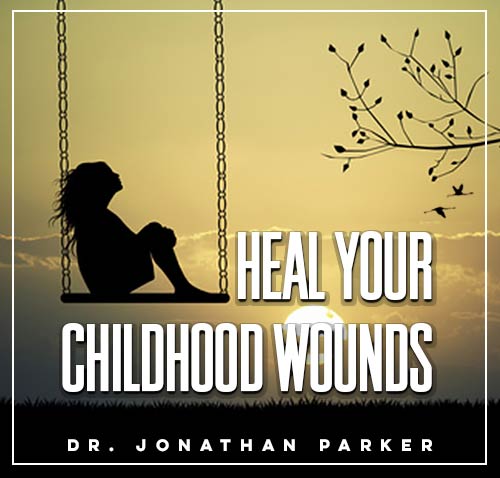Abandonment Trauma Recovery: Embrace Self-Compassion

Hey there, amazing readers! 🖐️ Just a quick note: yes, we know there are a lot of ads here. Trust us, we get it—it’s not the prettiest look, but they help us keep this blog alive and kicking. Those pesky little ads cover the costs of all the behind-the-scenes magic, from hosting and tech stuff to creating content we hope you’ll love.
We’re committed to delivering quality posts, and your support (even just sticking around despite the ads) means everything to us. So, bear with us, and thanks for helping us keep the good vibes rolling. Now, on to the fun stuff! 😉
TRANSLATE BUTTON AT THE END OF THE ARTICLE
A Quick Overview
Abandonment trauma is a deeply ingrained emotional wound that stems from feelings of rejection, neglect, or betrayal by a significant person in one’s life.
This type of trauma can have profound effects on an individual’s mental health and well-being, leading to issues such as low self-esteem, trust issues, and difficulty forming healthy relationships.
Recovery from abandonment trauma requires a combination of self-awareness, self-compassion, and healing techniques to address the underlying emotional pain and rebuild a sense of security and self-worth.
Understanding Abandonment Trauma
Abandonment trauma is often rooted in childhood experiences of neglect, emotional unavailability, or physical separation from caregivers or loved ones.
These early experiences can create deep-seated feelings of insecurity, unworthiness, and fear of rejection that persist into adulthood.
Individuals who have experienced abandonment trauma may struggle with forming secure attachments, setting boundaries, and trusting others, as they may fear being abandoned or hurt again.
Impact of Abandonment on Mental Health
The impact of abandonment trauma on mental health can be significant, leading to a range of emotional, cognitive, and behavioral issues.
Some common effects of abandonment trauma include:
Low self-esteem and self-worth
Anxiety and depression
Trust issues and fear of intimacy
Difficulty in forming and maintaining relationships
Feelings of shame, guilt, and unworthiness
Self-sabotaging behaviors and patterns
Addressing abandonment trauma is essential for improving mental health and overall well-being.
Recognizing Symptoms of Abandonment Trauma
Recognizing the symptoms of abandonment trauma is the first step towards healing and recovery.
Some common signs of abandonment trauma include:
Fear of rejection or abandonment
Difficulty trusting others
Low self-esteem and self-worth
Intense fear of being alone
Feelings of emptiness or unworthiness
Avoidant or dependent behaviors in relationships
By acknowledging these symptoms and their underlying causes, individuals can begin to work towards healing and overcoming abandonment trauma.
Importance of Self-Compassion in Recovery
Self-compassion is a crucial component of recovery from abandonment trauma, as it involves treating oneself with kindness, understanding, and acceptance.
By practicing self-compassion, individuals can learn to validate their own emotions, soothe their inner pain, and cultivate a sense of worthiness and resilience.
Self-compassion allows individuals to acknowledge their suffering without judgment and to nurture a sense of inner security and self-love.
Healing Techniques for Abandonment Trauma
Healing abandonment trauma involves a combination of therapeutic techniques, self-care practices, and emotional processing.
Some effective healing techniques for abandonment trauma include:
Cognitive-behavioral therapy to challenge negative beliefs and patterns
Eye movement desensitization and reprocessing (EMDR) to process trauma memories
Mindfulness meditation to increase self-awareness and emotional regulation
Inner child work to heal past wounds and cultivate self-compassion
Journaling to express and process emotions in a safe and reflective manner
By exploring these healing techniques, individuals can work towards resolving their abandonment trauma and creating a sense of emotional balance and well-being.
Building Resilience Through Self-Care
Building resilience is essential for recovery from abandonment trauma, as it involves developing coping skills, self-care practices, and healthy boundaries to protect one’s emotional well-being.
Some self-care practices for building resilience include:
Establishing a routine for self-care activities such as exercise, meditation, and relaxation
Setting boundaries with others to protect one’s emotional space and needs
Engaging in activities that bring joy and fulfillment, such as hobbies, creative pursuits, or spending time in nature
Seeking social support from trusted friends, family members, or support groups
Prioritizing rest, relaxation, and self-compassion in daily life
By prioritizing self-care and building resilience, individuals can strengthen their emotional well-being and overcome the effects of abandonment trauma.
Overcoming Shame and Guilt
Shame and guilt are common emotions experienced by individuals with abandonment trauma, as they may internalize feelings of unworthiness, inadequacy, or responsibility for the abandonment they experienced.
Overcoming shame and guilt involves:
Recognizing and challenging negative self-beliefs and internalized shame
Practicing self-forgiveness and self-compassion for past mistakes or perceived shortcomings
Seeking therapy or support groups to process feelings of shame and guilt in a safe and validating environment
Engaging in self-reflective practices such as journaling or mindfulness meditation to explore and release shame-based beliefs
By addressing shame and guilt with compassion and understanding, individuals can begin to heal their emotional wounds and cultivate a sense of self-acceptance and worthiness.
Cultivating Self-Acceptance and Self-Love
Cultivating self-acceptance and self-love is a vital aspect of recovery from abandonment trauma, as it involves recognizing one’s inherent worth, value, and uniqueness.
Some ways to cultivate self-acceptance and self-love include:
Practicing positive affirmations and self-compassionate language
Engaging in activities that nurture self-expression, creativity, and self-discovery
Setting realistic goals and celebrating achievements, no matter how small
Surrounding oneself with supportive and loving people who validate one’s worth and strengths
Engaging in self-care practices that promote self-compassion and self-nurturing
By cultivating self-acceptance and self-love, individuals can begin to heal their emotional wounds and build a foundation of self-worth and self-compassion.
Seeking Support from Loved Ones
Seeking support from loved ones is crucial for recovery from abandonment trauma, as it involves reaching out to trusted individuals who can provide empathy, validation, and understanding.
Some ways to seek support from loved ones include:
Sharing one’s feelings and experiences with a trusted friend, family member, or partner
Setting boundaries and communicating one’s needs for support and understanding
Engaging in activities that foster connection, intimacy, and emotional support
Seeking professional therapy or counseling to process abandonment trauma in a safe and validating environment
Joining support groups or online communities for individuals with similar experiences of abandonment trauma
By seeking support from loved ones, individuals can feel validated, understood, and less alone in their recovery journey from abandonment trauma.
Therapy Options for Abandonment Trauma
Therapy can be a valuable tool for recovery from abandonment trauma, as it provides a safe and supportive environment to explore and process one’s emotions, beliefs, and experiences.
Some therapy options for abandonment trauma include:
Cognitive-behavioral therapy (CBT) to challenge negative beliefs and patterns
Dialectical behavior therapy (DBT) to improve emotional regulation and interpersonal skills
Eye movement desensitization and reprocessing (EMDR) to process trauma memories and reduce emotional distress
Psychodynamic therapy to explore early attachment issues and unconscious patterns
Group therapy or support groups for individuals with abandonment trauma to share experiences and receive validation and support
By seeking therapy for abandonment trauma, individuals can gain insight, healing, and tools for managing their emotional pain and rebuilding a sense of security and self-worth.
Mindfulness Practices for Healing
Mindfulness practices can be beneficial for healing abandonment trauma, as they promote self-awareness, emotional regulation, and acceptance of one’s thoughts and feelings.
Some mindfulness practices for healing abandonment trauma include:
Mindful breathing exercises to increase relaxation and reduce stress
Body scan meditation to tune into physical sensations and release tension
Loving-kindness meditation to cultivate compassion for oneself and others
Mindful journaling to explore and process emotions in a reflective and non-judgmental manner
Mindful movement practices such as yoga or tai chi to connect with the body and release emotional tension
By incorporating mindfulness practices into daily life, individuals can develop a greater sense of self-awareness, emotional regulation, and acceptance of their abandonment trauma experiences.
Embracing a Positive Self-Image
Embracing a positive self-image is essential for recovery from abandonment trauma, as it involves cultivating a sense of self-worth, confidence, and self-acceptance.
Some ways to embrace a positive self-image include:
Practicing self-affirmations and positive self-talk to challenge negative self-beliefs
Engaging in activities that promote self-expression, creativity, and self-discovery
Setting boundaries with others to protect one’s emotional well-being and needs
Surrounding oneself with supportive and loving individuals who validate one’s worth and strengths
Engaging in self-care practices that prioritize self-compassion, self-nurturing, and emotional well-being
By embracing a positive self-image, individuals can begin to heal their emotional wounds, rebuild their sense of self-worth, and cultivate a foundation of self-acceptance and self-love.
Conclusion
Recovering from abandonment trauma requires a combination of self-awareness, self-compassion, and healing techniques to address the underlying emotional pain and rebuild a sense of security and self-worth.
By recognizing the impact of abandonment trauma on mental health, acknowledging symptoms, practicing self-compassion, and seeking support from loved ones, individuals can work towards healing and overcoming abandonment trauma.
Through therapy options, mindfulness practices, and cultivating self-acceptance and self-love, individuals can build resilience, overcome shame and guilt, and embrace a positive self-image on their journey towards healing and recovery.
With dedication, support, and self-compassion, individuals can navigate the challenges of abandonment trauma and create a path towards emotional well-being and inner peace.

The Enlightenment Journey is a remarkable collection of writings authored by a distinguished group of experts in the fields of spirituality, new age, and esoteric knowledge.
This anthology features a diverse assembly of well-experienced authors who bring their profound insights and credible perspectives to the forefront.
Each contributor possesses a wealth of knowledge and wisdom, making them authorities in their respective domains.
Together, they offer readers a transformative journey into the realms of spiritual growth, self-discovery, and esoteric enlightenment.
The Enlightenment Journey is a testament to the collective expertise of these luminaries, providing readers with a rich tapestry of ideas and information to illuminate their spiritual path.
Our Diverse Expertise 🌟
While our primary focus is on spirituality and esotericism, we are equally passionate about exploring a wide range of other topics and niches 🌍📚. Our experienced team is dedicated to delivering high-quality, informative content across various subjects ✨.
To ensure we provide the most accurate and valuable insights, we collaborate with trusted experts in their respective domains 🧑🏫👩🏫. This allows us to offer well-rounded perspectives and knowledge to our readers.
Our blog originally focused on spirituality and metaphysics, but we’ve since expanded to cover a wide range of niches. Don’t worry—we continue to publish a lot of articles on spirituality! Frequently visit our blog to explore our diverse content and stay tuned for more insightful reads.






















